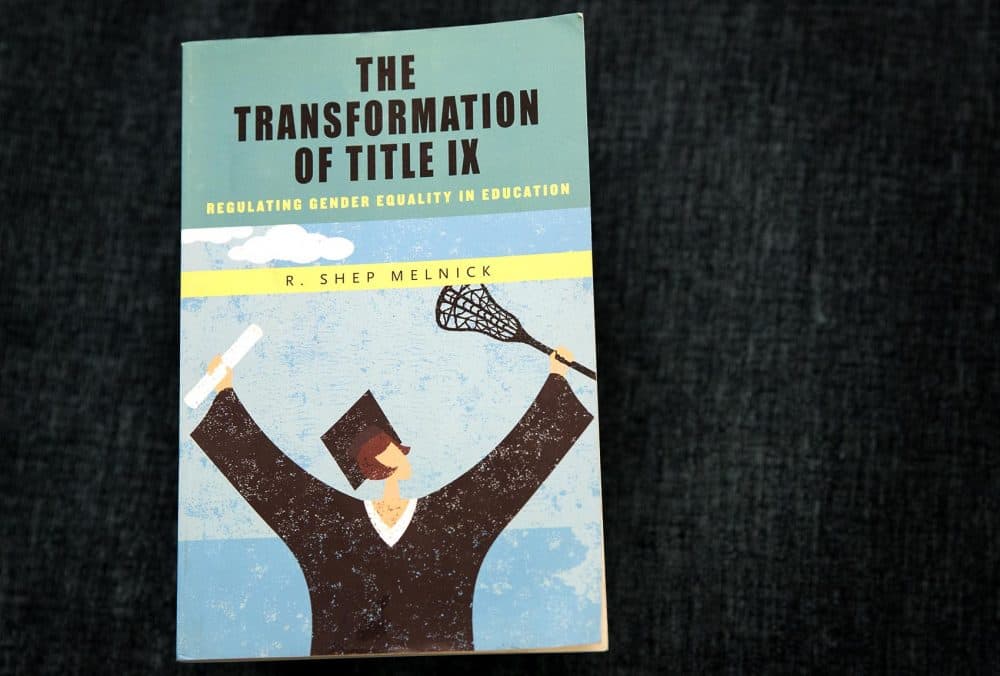Advertisement
How Title IX Got Swept Up In America's Culture Wars, According To A Boston Prof

Title IX, passed by Congress in 1972, threw open the doors of educational and athletic opportunity for women in America. Even beyond parity in college athletics, women are now a higher percentage of the student body than men on some college campuses.
Title IX went on to become the regulatory tool the Obama administration used to push back against campus sexual assault and push for transgender accommodations.
Today, Title IX has become more controversial than ever. R. Shep Melnick, a political science professor at Boston College, writes in his book, "The Transformation of Title IX: Regulating Gender Equality in Education," that the evolution of Title IX is a "cautionary tale" about "how good intentions and broadly defined goals can become distorted over time by aggressive cultural combat."
Guest
R. Shep Melnick, professor of American politics at Boston College.
Interview Highlights
On how President Obama's issuance of protections for transgender students shows how regulation has substituted legislation
"Let me start with President Obama's original position was that ... he really thought it was important to have protections for transgender students. He thought that had to come through legislation. He proposed legislation, he backed legislation, and he refused to issue new regulations until it became clear that that legislation was going to fail. Then, he reversed his position and said 'Well, I'll do this administratively.'"
"I think that shows, number one, Congress is the abdication of responsibility which is, of course, no surprise. But also the extent to which regulation process has been used as a substitute for legislation."
On how Title IX went from regulatory tool to ensure parity to a tool to encourage new cultural rules
"Title IX first was aimed at the classroom. Then it moved to the playing fields and then moved to the bedrooms and the bathrooms. To change the way people think about what sex means what sex is appropriate in the most intimate settings."
"In a liberal democracy, we are very cautious about having government tell us how to think about very private things. We sometimes allow government to do that — but we usually expect Congress to act on that. We don't expect regulation of thought, to be done in this administrative kind of not participatory way.
"When I say [regulation of thought], if you look at the sexual harassment rules that were promulgated by the Office for Civil Rights and mirrored in many colleges codes, they talk about behavior that has innuendos of sexual behavior. They get into a very detailed understanding of what we can and we cannot say — that's a pretty serious threat to freedom of speech. Once you start going down that road you run into a lot of constitutional issues."
Advertisement
On how Title IX regulations are results of 'institutional leapfrogging'
"Title IX gives power to administrative agencies — the Office for Civil Rights to write regulations. The courts are also very much involved in interpreting what Title IX requires. So, by 'institutional leapfrogging,' I mean the process by which the agency takes a small step, the court expands upon that, the agency that expands or what the court did, and then you go back and forth. There's this institutional growth where no one really thinks ahead of time about what is going to be at the end of that road."
"When Congress is not doing very much to legislate, we look to other sources. We look to courts, we look to agencies, and we look to states. That's inevitable. I think we need to look at some of the imperfections in the process that arise as a result."
This segment aired on July 26, 2018.

